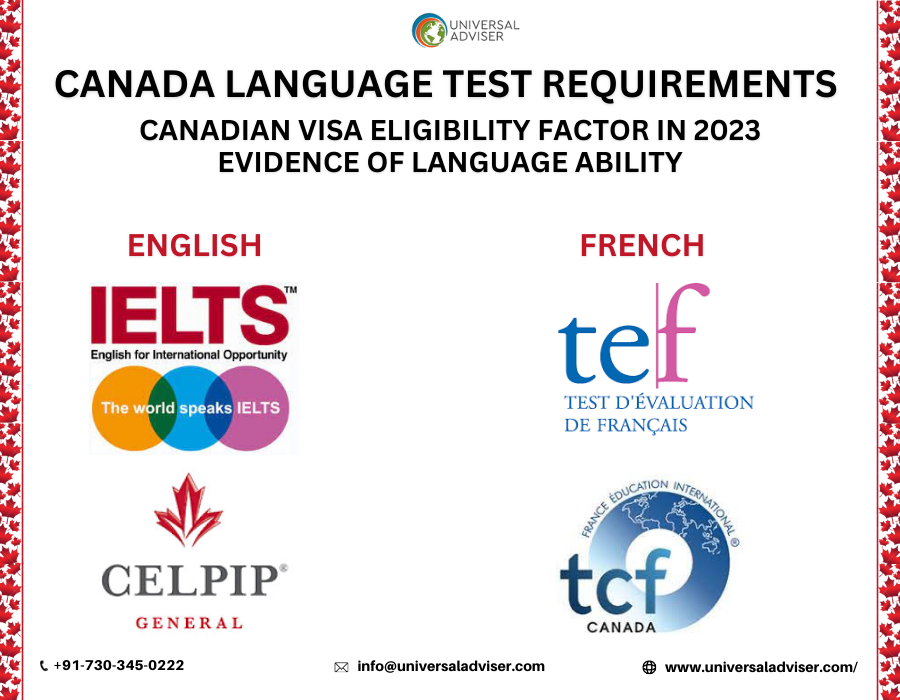
Navigating Language Requirements for Immigration to Canada
Canada’s immigration system is one of the most sought-after pathways for individuals looking to start anew in a different country. The framework is designed to evaluate the skills, qualifications, and overall readiness of potential immigrants. A significant aspect of this evaluation process is language proficiency. Mastery of one of Canada’s official languages, English or French, is essential not only for successful immigration but also for effective integration into Canadian society. Understanding the language requirements can greatly enhance your prospects of becoming a permanent resident.
Importance of Language Proficiency
Language proficiency is more than just a requirement; it is a fundamental skill that enhances your ability to communicate, connect, and thrive in Canada. English and French are the two official languages of the country, and proficiency in either can open numerous doors. From job opportunities to social interactions, strong language skills are crucial. Employers often seek candidates who can communicate effectively, and many jobs require a minimum level of proficiency. Additionally, higher language skills can significantly influence your immigration points score, which plays a vital role in the selection process. Mastering the language not only aids in professional settings but also enriches personal relationships and cultural experiences.

Language Testing Requirements
All prospective immigrants to Canada must undertake an approved language test to assess their proficiency. Tests such as the IELTS (International English Language Testing System) for English and the TEF (Test d’évaluation de français) for French are widely recognized and mandated by the Canadian government. Achieving a minimum score in these tests is non-negotiable, and it applies irrespective of your background or nationality. This requirement ensures that all immigrants possess the necessary language skills to navigate daily life in Canada effectively. Preparing for these tests requires dedication and understanding of the test formats, which include listening, reading, writing, and speaking components.
Scoring System and Language Points
Canada employs a point-based system to evaluate language proficiency, which is essential for immigration applications. Points are awarded based on your performance in the standardized language tests, with specific scores translating to a certain number of points. For example, higher scores in the listening and speaking sections can significantly enhance your overall score. Furthermore, additional points are available for bilingual candidates, those who can proficiently communicate in both English and French. Understanding this scoring system is crucial for strategizing your language learning efforts. By focusing on areas where you can gain the most points, you can maximize your immigration score and boost your chances of being selected for permanent residency.
The Role of Bilingualism in Employment
In Canada, bilingualism is not just an asset; it can be a necessity in various job markets. Many employers, particularly in government roles and sectors that require frequent interaction with the public, prefer or require candidates who can communicate in both of the country’s official languages. This demand for bilingual candidates is particularly pronounced in regions with significant French-speaking populations, such as Quebec. Enhancing your language skills can therefore significantly increase your employability, allowing you to access a broader range of job opportunities. Investing in language education and practice can yield substantial dividends in your career, making you a more competitive candidate in the job market.
Regional Language Differences
Language requirements can vary considerably across Canada’s provinces and territories. For instance, Quebec has stringent language laws due to its predominantly French-speaking population. In Quebec, knowledge of French is not only beneficial but often essential for both everyday life and employment. Other provinces, such as Ontario and British Columbia, may have different language dynamics where English predominates but still value French proficiency. Understanding these regional differences is vital for anyone considering immigration to Canada. It helps you prepare for the linguistic landscape of the area you plan to settle in and ensures that you meet the local expectations regarding language skills.
Strategies for Language Improvement
Improving your language skills requires consistent effort and the right strategies. Immersion is one of the most effective methods; surround yourself with English or French media, including movies, podcasts, news articles, and books. Engaging with native speakers through conversation groups or language exchange programs can also accelerate your learning process. Consider enrolling in formal language classes, which can provide structured learning and valuable feedback from experienced instructors. Online resources, such as language apps and websites, can supplement your learning and offer flexibility. The key to success lies in consistent practice and a willingness to step out of your comfort zone.
Cultural Integration through Language
Learning the local language goes beyond merely passing tests; it is a crucial element of cultural integration. Proficiency in English or French allows you to connect with the community, understand cultural nuances, and participate actively in social and civic life. Language is a bridge that fosters relationships and a sense of belonging. By embracing the language, you not only enrich your personal experience but also contribute to the multicultural tapestry of Canadian society. Engaging in community activities, volunteering, and attending local events can enhance your language skills while helping you forge meaningful connections with others.
Conclusion: Embrace the Language Journey
While the language requirements for immigration to Canada may initially seem overwhelming, they present an opportunity for personal growth and development. Embracing the challenge of learning and improving your language skills is a vital part of your journey to becoming a part of Canadian society. With dedication, persistence, and the right strategies, you can navigate the language landscape effectively, ensuring a smooth transition into your new home. Overcoming the language barrier will not only facilitate your immigration process but also enrich your life in Canada, allowing you to thrive in both personal and professional arenas.
